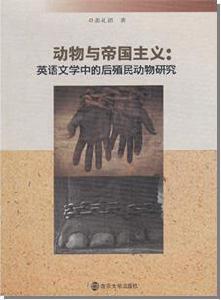內容介紹
20世紀80年代以來,西方人文社會科學研究領域呈現出一種“動物轉向”的趨勢,眾多文學批評家突破傳統的象徵主義闡釋模式,運用各種文藝理論、從多元視角解讀文學作品中的動物意象,成果斐然。但總體來說,大多數學者主要從生態批評、女性主義、倫理批評等維度對動物意象進行闡釋;動物意象的後殖民批評在國外剛剛起步,尚未形成體系化和理論性的研究,國內亦尚未有學者涉足此領域。
作者介紹
姜禮福 南京大學外國語學院英語系博士研究生,主要從事英國文學研究。
作品目錄
Introduction
Chapter One Violent Conquest of Zoological Imperialism and the Transforming of Colonial Animal Stereotypes:The Animal "Bites" Back
a. The Conquered Tiger, and Its Awakening and Avenging in The White Tiger
b. Shameful Elephants, Colonial Mimicry and Brutal Slaughtering in The White Bone
c. European Dogs. Racialization and Violence in Disgrace
d. Animal Counterpart, Cannibalism and Violence in Life of Pi
Chapter Two Cultural Domination of Zoological Imperialism and Counter-colonial Animal Representation: The Animal "Roars"
Back
a. Language Demythologization and Coloniser-Animal Boundary Subversion
b. Becoming-Animal and Cultural Identity Reconstruction
c. Zoological Space, Cultural Domination and Conflicts
d. Postcolonial Allegory, Animal Images and Cultural Conflicts
Chapter Three Ecological Invasion of Zoological Imperialism and the Welfare of Animal Others: The Animal "Gazes" Back
a. Animal Exploitation, Ecological Imperialism and Ecocritical Ethics
b. Western Anthropocentrism, Compromising and Coexisting with the Bengal Tiger in Life of Pi
c. Animal Sentimentality, Animal Subjectivity and Moaning Elephants in The White Bone
d. Colonial Cattle-killing Movement and Postcolonial Animal Conservation in The Heart of Redness
e. Natural Resource Exploitation, Animal Pathos and the Postcolonial Ecological Thinking in The White Tiger
Conclusion
Works Cited

